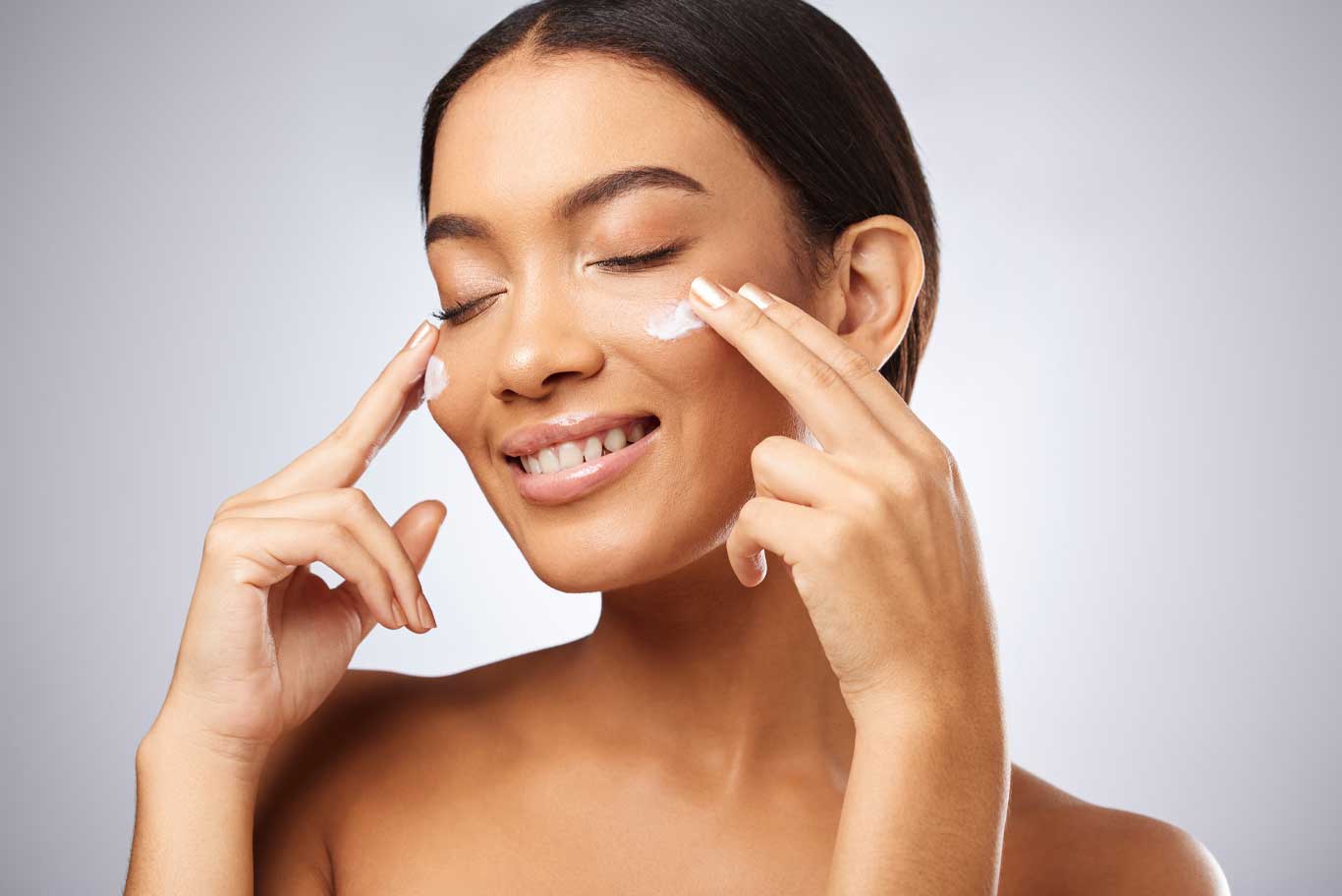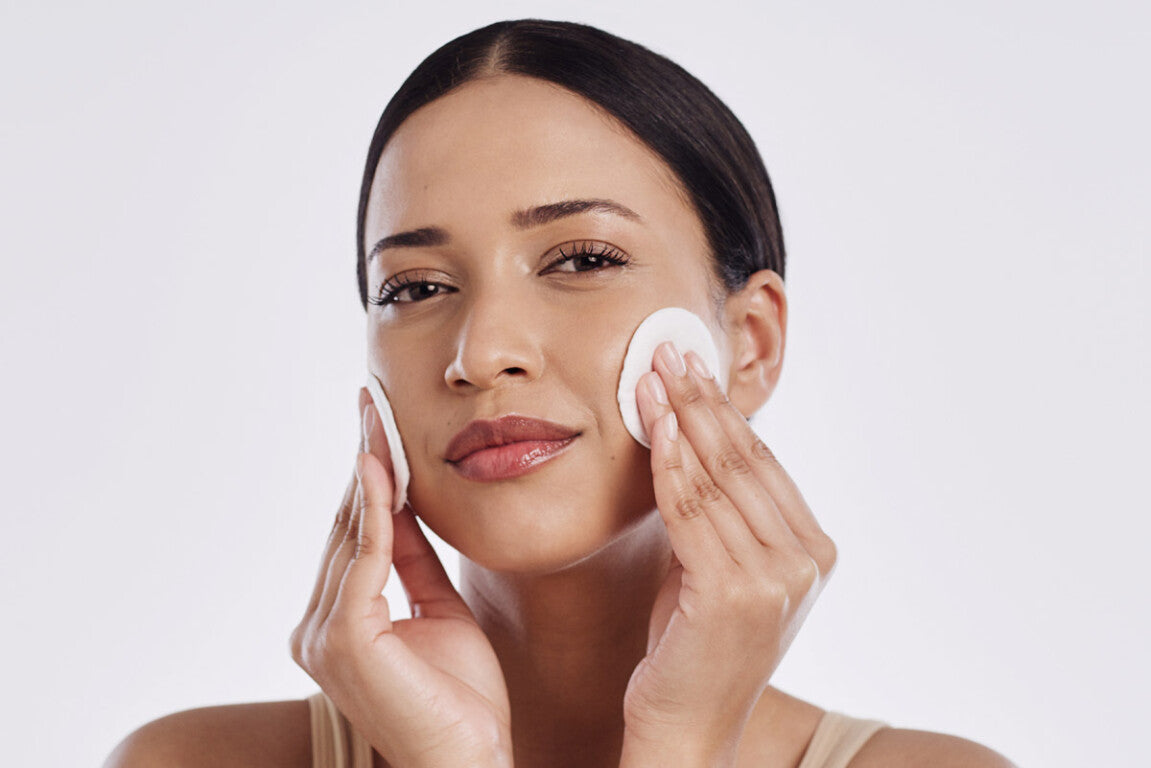This resource discusses skincare practices and routines that protect and support the skin throughout the winter season.
As the seasons change, people swap their bathing suits for coats and sandals for snow boots. But if we change our wardrobes to better protect us in colder seasons, shouldn’t we also change our skincare routines?
On The Skin Report podcast, Dr. Simran Sethi, an Internal Medicine doctor and Founder of RenewMD medical spas and SKIN by Dr. Sethi, explains how people can use skincare routines with nourishing products to support their skin all winter long. She uses science-backed information to explain why skin requires extra care in the winter, how to determine the best products to use in the winter, and how to address skin needs throughout the changing seasons.
How Winter’s Changes Affect the Skin
In order to establish a seasonal skincare regime, we should consider the seasonal changes in weather to determine the best products we require to nurture our skin.
Regardless of when and how long winter happens for you, the colder season brings with it dry air. As a result, our skin becomes dry too.
Dry air can irritate the skin; many call this effect the “winter rash.” Winter rash usually describes irritated, red, flaky skin, but incorporating the right skin care practices into your routine can help keep your skin healthy and glowing! Moisture and skin barrier protection are critical throughout the winter months and should be the focus of our skincare.
Winter Skin Care Dos and Don’ts
DO Exfoliate:
While the winter may be cold and dry, exfoliation is still necessary for your skincare routine. Exfoliation removes dead skin cells from the surface of our skin. These layers of dead skin can otherwise make our skin look dull and prevent our skincare products from fully absorbing into the skin. Therefore, consider reducing your exfoliation to every other day or using a lower strength. Doing so will allow you to exfoliate while maintaining your skin barrier.
DO Moisturize:
Moisturization is essential for the drying winter months! Switching to a thick lipid-rich formula in winter can be especially beneficial for those with dry, sensitive, or mature skin. Moisturizers with thicker formulations that include lipids like linoleic acid or avocado oil can nourish the skin and improve the skin barrier.
DO NOT Skip Your AM Face Wash:
Some people may recommend skipping face washing in the morning. However, washing your face with a cleanser every morning is vital, as skin follows a circadian rhythm and actively grows new skin cells in the skin’s deep dermis at night. This can mean that older skin cells are pushed up to the skin’s surface. Washing your face will remove the dead skin cells and debris from your skin’s surface before they have the chance to clog your pores. Therefore you should always wash your face in the morning, whether dry, oily, combination or sensitive skin.
DO NOT Apply High Molecular Weight Oils:
Applying coconut oil or high molecular weight oils on your skin may seem like a smart way to gain moisture; however, this is not the case. Larger molecular weight oils have difficulty penetrating the skin if applied directly, and doing so will not benefit your skin. However, their absorption improves when properly formulated with other compounds in skin care. That said, using products with oils in them, like a lipid-rich moisturizer, can be great for the winter.
DO Start a Winter Skin Care Routine:
Plenty of resources online recommend different routines and products to help keep skin healthy in the wintertime. Read on to learn about the best science-backed practices recommended by Dr. Sethi for your morning and evening winter skincare routines.
Winter Morning Skincare Routine
Step 1
- Cleanse your face with a moisturizing or hydrating cleanser that will not strip your skin of oils.
- Choosing a cream-based, hydrating cleanser will help you maintain moisture in the winter, regardless of your skin type.
- If you have dry, sensitive, or mature skin, avoid cleansers with AHA or BHA, as they may be overly drying.
Step 2
- Apply an antioxidant-rich serum like a vitamin C or green tea serum.
- These serums will help your skin protect itself from exposure to things like pollution, sun, and blue light, as antioxidants can fortify your skin proteins.
- Remember – moisturizers and serums have separate functions. Layering your skincare with effective products is more beneficial than relying on one cream to ‘do it all.’ Therefore, incorporate effective products with the active ingredients you know will make a difference to your skin’s health and appearance.
Step 3
- Moisturize your skin.
- All skin types require moisturization, no matter if it is oily, combination, normal, dry, or sensitive.
- If you have dry or sensitive skin, try to use a thicker formulation.
Step 4
- Apply a high-potency hyaluronic acid serum
- This step is more complicated and less known than the other steps in this routine. However, it is essential!
- We constantly lose moisture to the air, and our skin will continue to lose that moisture throughout the day unless we apply a moisture barrier to lock in our moisture.
- Hyaluronic acid is an excellent moisture barrier for all skin types. It keeps the skin plump and makes the skin appear more even in darker skin tones.
Step 5
- Use protective facial sunscreen.
- The sun’s rays are still intense in the winter and can damage the skin if not protected. Furthermore, climates with a lot of snow can cause you to get more sun exposure, as white snowy surfaces reflect sun rays!
- Even in the winter, you must wear an SPF of 30 or above.
Winter Morning Skincare Routine
In the evening, your skincare routine should look similar to your AM routine. You would repeat all the steps except sunscreen. However, you should also consider exfoliating several nights a week after cleansing.
Additionally, If you are using retinol, you should include this in your PM routine after applying your serum and before you apply your moisturizer.
Check out Season 1, Episode 33 of The Skin Report podcast to learn about science-backed winter skincare. Also, visit the YouTube channel for more episodes and bonus content!



